Does Roundup kill hostas?
There is a hosta which gets ugly after a couple months in my yard. I want to grow a fern in it's place. I will be trying it May 13 th . Does anyone have another result or opinion?
Comments (66)
Jon 6a SE MA
9 years agoBernd,
Glyphosate can enter through green stems and green trunks of young trees (or anything else) Yes I would agree that being careful is smart. I would not spray on any tree or spray where it could wash into the roots... of anything except the target you want to kill. I am going by what they say, but I have to assume Universities and other non-producers have looked at the claims and the mechanism of how it works. It has been around for about 50 years.
I have about a dozen azalea that I spray in between with glyphosate every year, very carefully with a narrow jet. I haven't lost one....yet. Anything more than it takes to wet the leaves of the target does nothing except maybe endanger what you don't want to kill.
All scientific data suggests that it is the least toxic herbicide available and it is a great deal better and less toxic than what was used previously or has been developed since its invention. It bothers me that there are people that don't realize how beneficial many things are (not you) and are so ready to attack a product based on non-science and ill-informed politics.
If successful the banning of glyphosates, genetically modified crops and other methods will not make food any safer, only more expensive and more scarce. These 'causes' are on a par with burning food in our gas tanks which pollutes more, costs more and produces more carbon dioxide as well as rising the cost of food worldwide which the World Health Organization says is responsible for 200,000 deaths worldwide. Using Roundup ready (genetically crossed with glyphosate resistant grasses) has greatly increased the yield of soy and other crops using less herbicides, saving fuel and at far less cost.
These issues are 'hot button' issues for many. Unfortunately they don't take the time to look at both sides of an issue and quickly make up their minds without studying both sides or much rational thought.
Jon
poaky1
Original Author9 years agoSo many replies, thanks to all who replied. It is an all green hosta, it is huge. That is why I chose the easy way, roundup. It gets ugly even with moisture added when it doesn't rain, in mid summer. It probably needs more shade. The fern needs shade, but the area is going to eventually be in full shade. I just want the fern there. I have an oak there which will be getting some size to it soon. I can put fake shade there for the fern if needed. I have many hostas and love them, but the one I am killing is really tattered and ugly in July maybe late June. The same fern is near my house, and it gets ugly in summer too. Maybe if I cut the leaves and they make new ones, it'll be fine. Most of my hostas don't do that.
Related Professionals
Seabrook Landscape Architects & Landscape Designers · Goodyear Landscape Contractors · Ellensburg Landscape Contractors · Glendale Heights Landscape Contractors · Hannibal Landscape Contractors · Little Ferry Landscape Contractors · New Cassel Landscape Contractors · Tacoma Landscape Contractors · Eustis Driveway Installation & Maintenance · Milpitas Driveway Installation & Maintenance · Westland Driveway Installation & Maintenance · Carney Fence Contractors · Diamond Bar Fence Contractors · Marana Fence Contractors · Bel Air Solar Energy Systemspoaky1
Original Author9 years agoThe Hosta that gets ugly in June etc never did show any signs of stress after my spraying it with roundup. I cut the foliage off, and planted the fern, maybe they both will grow there, the hosta will look bad soon, maybe if I cut the foliage off, it will grow back and be fine til fall. I have lots of hostas. Several I sprayed roundup NEAR because of weeds growing near them. You can guess what I am going to say. If they croak because a drop of roundup landing on them, I will be really P.O'd.
donna_in_sask
9 years agoJust wanted to make a correction that Ontario has banned most pesticides and herbicides - not all of Canada. I live in SK and can pretty much get whatever I want. I prefer to dig out my weeds by hand, but it's nice to know that I can access stronger stuff should I feel I need it.
Jon 6a SE MA
9 years agoIf you are close to any plant that may be affected you can paint the weed or 'death row' plant with glyphosate using a throw away foam paintbrush and rubber gloves.
Jon
annie1992
9 years agoI have never posted here, don't grow hostas (here in Michigan we call them "deer bait", the deer love 'em), and haven't managed to keep them intact from the rats on hooves....um.....deer.
I am not a fan of RoundUp and other glyphosphates and won't defend them or Monsanto, who own several of our politicians. However, it's not the RoundUp implicated in the bee death, it's a chemical called clothianidin, manufactured by Bayer. It's the red "stuff" on seed corn. Bayer knew it would kill bees but maintained that since corn is planted, the poison wouldn't affect the bees, it would be under ground. They didn't take into consideration that the stuff comes off and spreads around when the seed corn is packaged or when it is poured into planters and other equipment.
Annie
User
8 years agolast modified: 8 years ago"Original" RoundUp that contains only Glyphosate will not kill hostas---at least none of the ones I was trying to get rid of. It had no effect whatsoever!
RoundUp PLUS which also contains Diquat WILL kill hostas.... but it is a slow death involving weeks instead of days. After a week, you can see that the hosta is having a problem: it has lines in its leaves; it's not getting any bigger, and yet it hangs on and on until it finally gives in.
I was able to use a COARSE spritz of small drops---up very close and on the individual hosta leaves---on a totally WINDLESS day. If you stand back and try to spray the whole plant, the stuff is going to get on other plants that you desire---get real close! The RoundUp Plus killed the hostas and did not harm the pachysandra which was coming up right in the midst of the hostas. Now I have a solid bed of pachysandra---which is thriving.
As far as I can tell, if you want to kill Hostas, make sure the product contains Diquat.
Jon 6a SE MA
8 years agoMorgan, it is less effective like HVX is when a hosta is heading into dormancy, but I don't think hosta are immune to glyphosate. It is guaranteed to kill, but it does take time. It starts to break down immediately when it hits soil. It interrupts plant (and only plant enzymes).
It has been on the market since WWII and is the safest herbicide on the market, far safer and more effective than any organic herbicide. The basic cautions are to use as directed, do not spray near any pond river or other water and allow to dry before letting children or pets in the area.
I grew up where Monsanto PCBs were dumped into the water near where we swam, so I am no fan of what Monsanto has done in the past, but science is science and glyphosate (RoundUp) is very safe.
zkathy z7a NC
8 years agolast modified: 8 years agoSo if it only interrupts plant enzymes how does it kill water creatures?
ken_adrian Adrian MI cold Z5
8 years agowow on the two answers prior to zk's ...
i wouldnt quote them as authority ... but i appreciate the opinion.. and the effort to tell us ...
kenJon 6a SE MA
8 years agoWhat are some signs and symptoms from a brief exposure to glyphosate
Pure glyphosate is low in toxicity, but products usually contain other ingredients that help the glyphosate get into
the plants. The other ingredients in the product can make the product more toxic. Products containing glyphosate
may cause eye or skin irritation. People who breathed in spray mist from products containing glyphosate felt irritation
in their nose and throat. Swallowing products with glyphosate can cause increased saliva, burns in the mouth and
throat, nausea, vomiting, and diarrhea.
Pets may be at risk if they touch or eat plants that are still wet with spray from products containing glyphosate. Animals
exposed to products with glyphosate may drool, vomit, have diarrhea, lose their appetite, or seem sleepy.
What happens to glyphosate when it enters the body
In humans, glyphosate does not easily pass through the skin. Glyphosate taken
in through the skin or by mouth goes through the body in less than one day. Glyphosate
leaves the body in urine and feces without being changed into another
chemical.
Studies with rats showed that about one-third of a dose of glyphosate was absorbed
by the rats’ intestines. Half of the dose was found in the rats’ stomachs
and intestines 6 hours later, and all traces were gone within one week.
Is glyphosate likely to contribute to the development of cancer
Animal studies have not shown evidence that glyphosate exposure is linked to cancer. Studies with people have also
shown little evidence that exposure to glyphosate products is linked with cancer.
Has anyone studied non-cancer effects from long-term exposure to glyphosate
Glyphosate exposure has not been linked to developmental or reproductive effects in rats except at very high doses
that were repeated during pregnancy. These doses made the mother rats sick. The rat fetuses gained weight more
slowly, and some fetuses had skeletal defects.
No information was found linking exposure to glyphosate with asthma or other diseases.
Are children more sensitive to glyphosate than adults
There were no studies found showing that children are more sensitive to glyphosate than adults. While children may
be especially sensitive to pesticides compared to adults, there are currently no data showing that children have increased
sensitivity specifically to glyphosate. http://npic.orst.edu/factsheets/glyphogen.pdf
Jon 6a SE MA
8 years agoRoundup and Roundup Pro offer a safe and economical way to eradicate vegetation and weeds that grow through the surfaces of trails.
Roundup is a broad-spectrum herbicide which only kills emerged plants. It enters the plant through leaves, green branches, and green stems; then moves through the plant to the roots. It works by inhibiting the formation of specific essential amino acids necessary for plant growth and it will only eliminate plants that are directly sprayed and will not affect seed growth.
Roundup Pro is a product specially formulated for agricultural use and has a surfactant added making it rain-fast 2 hours after application.
Reportedly, Roundup does not move through the soil, so non-sprayed plants are not affected. The active ingredient in Roundup is glyphosate. It breaks down into natural elements: nitrogen, carbon dioxide, water and phosphate. Soil temperature and the number of microbes the soil contains affects the time it takes the chemical to break down. In the coldest climates, the active ingredient in Roundup could remain in the soil for almost a year.
PROPER USE
Label instructions are good but here are some tips:
- Temperature--use when ambient air temperature is between 60 - 85 degrees F.
- Do not use if rain is expected, or if foliage is wet.
- Do not water treated areas for at least 6 hours after treatment.
- Allow seven days for plant to die.
- Recreational use may resume in a treated area after Roundup has completely dried (usually six hours although in some climates, drying may take up to 24 hours).
- Do not use in windy conditions or on water.
- In cool, dark or dry climates the effects of treatment may take longer than a week because plant growth rates are slowed and the chemical requires more time to act and the plant to die.
PRECAUTIONS
Long sleeved shirts, long pants, shoes and socks should always be worn during application. Gloves should be worn if treatment lasts longer than 30 minutes.
Eyes & Face Protection
Although not required, it is recommended that eye protection, chemical goggles, be worn during application. If the chemical gets into the eyes, rinse with water.
Skin Irritation
Generally, Roundup will not irritate the skin. However, hands and other contacted skin should be washed with soap and water after handling the product. http://www.fhwa.dot.gov/environment/recreational_trails/publications/fs_publications/97231305/
Jon 6a SE MA
8 years agoWILDLIFE EFFECTS
The main ingredient in Roundup is glyphosate. Laboratory test have shown this chemical to be poorly absorbed if ingested. Negligible residues have been reported in wild animals such as voles, chipmunks, hares and moose after feeding in treated areas. Studies also indicate that glyphosate does not accumulate in edible portions of fish and marine organisms. Glyphosate does not bio-accumulate in the food chain.
The Environmental Protection Agency (EPA) concluded that Roundup is only slightly toxic to birds and almost non-toxic to fish, aquatic invertebrates and honey bees. In addition, the EPA has concluded that endangered land or water organisms are not affected from the use of the chemical.
http://www.fhwa.dot.gov/environment/recreational_trails/publications/fs_publications/97231305/
the only reason that it should not be used around ponds etc. is because it can kill large area of aquatic vegetation removing the food for many fish and invertebrates in water affected. I would not trust anything that I am not confident has a reputable source for the information.I think hosta may take longer than other plants, but there is no reason to think that the ingredient which affects amino acids in plants only does not work on hosta. The only plant that I have heard of is a particular grass that is the one plant that could survive glyphosate. This is the grass that was hybridized (GMO) with soy and other plant crops to make them 'RoundUp Ready' or able to survive being sprayed with glyphosate to kill the weeds and have the crop survive greatly reducing cost and increasing yield and wherever it is possible is used by farmers or they cannot compete and go out of business. Everyone reading this eats these products regularly and zero side effects have been reported or even suspected.
If hosta are resistant to Round Up the people at Monsanto would be very interested in it as I'm sure it would open up a great opportunity to expand their success with 'RoundUp ready' plants.
There are a lot of people anxious to find a cause that spread a lot of stories. I prefer to read what the FDA and other scientific organizations that have spent decades studying the effects of different pesticides and their effects on people, plants and wildlife.
Jon
PS- I have no connection with Monsanto or any chemical company. I just don't like to be misinformed.
Jon 6a SE MA
8 years agolast modified: 8 years agoGlyphosate is the safest man-made or organic herbicide period. Countries, like Canada, that ban it not only ban glyphosate, they ban every herbicide for home use, a fact that is generally 'forgotten' by those with this particular cause.
DelawareDonna Zone 7A
8 years agoI sprayed Roundup Plus on evasive liriope. To me it's a weed (N0T!). If I had read the directions on the bottle I would have seen that it only kills weeds and grass - period! My only recourse is to dig it up slowly inch by inch. I HATE LIRIOPE! So I don't see how it killed a hosta or an Azalea bush.
Jon 6a SE MA
8 years agoDD, Glyphosate will kill Liriope you might try using concentrate at the more concentrated dosage. nik, The WHO an arm of the united Nations is at odds with the FDA and many other agencies that have studied it for decades and found no such link. The studies in which doses of glyphosate thousands of times the strength of drinking it straight are meaningless and purposely misleading as the article states “IARC has classified numerous everyday items in Category 2 (cancer risk) including coffee, cell phones, aloe vera extract and pickled vegetables, as well as professions such as a barber and fry cook.”
Studies of farmers using glyphosate for decades in large quantities have no link to increased cancer. I don't know, but if you force fed rats and mice massive amounts of peanut butter they might have slightly increased risk of cancer. You have to consider the source and the methodology and often their agenda before you can evaluate whether what they are telling you is valid.
nikthegreek
8 years agolast modified: 8 years agoThanks Jon. Btw I can read the article myself and so, I hope, many of the other forum members, you really do not need to bother to give us your concise version of it. The article itself seems much less biased than your version fwiw.
Jon 6a SE MA
8 years agoNik, yes my post is biased. Biased toward the best scientific information possible and against the spread of misinformation. I'm sorry that you don't like me copying the portion of the report that supports my point. I don't see the point of simply posting links and expecting that others will read the link try to interpret what your point may be then provide both sides of an argument.
If others want to read further of course they can. I'm sorry that you find the facts tedious and biased against what you would like to believe.
nikthegreek
8 years agolast modified: 8 years agoJon, I wanted to make no point on the particlular subject other than linking to an article which I found interesting as food for thought and further research. I highlighted the issue as controversial by including the word 'controversy' in the link title.
As I said the article seems much less biased than you seem to be. You seem to have an axe to grind I don't.
Btw, copying portions of reports that support one's point while the uncopied sentence immediately after that diminishes the effect of that support is extremely annoying to anybody who, in this day and age, can find the extreme patience and stamina required to click on a link and read a page or so rather than a 10 word tweet.
If I wanted to take a position contrarian to your apparent concrete beliefs I could have started by linking to this Cornucopia.org What is the glyphosate controversy about? or this GMWatch here which highlight the basis and origin of the arguments in the scientific community (i.e. the nature of the almost exclusive sources for the 'best scientific information available') and as a testament to this, linking to this (older) EPA document EPA on glyphosate (older) highlighting the references section at the bottom.
I personally can have no position on the matter since I am no expert neither have I delved deeply in the available literature. However, I choose to remain cautious since there IS an apparent controversy which you readily choose to dismiss.
Jon 6a SE MA
8 years agonik, you do a lot of talking for someone who doesn't want to make a point and if, as you surely do, quoting Cornucopia and GMWatch shows that you give credence to very questionable sources. My quotes are from Oregon State University, the Department of Transportation sheets for handling chemicals you quote what are obviously agenda driven sites with very little credibility.
You and I are not experts, but when I haven't done the research I listen to the credible people who have. You choose to try and refute the work that has been done and the studies of thousands of people who have exposure to glyphosate regularly where there is zero indication of cancer or any other health problems from this exposure and you then tell me, hey, I'm not an expert, but here is a link to someone else that is not an expert or has had their work refuted. I suggest that following your intuition could have you using chemicals that you don't have a clue on.
It is not a smart way to go through life. Glyphosate and the use of 'RoundUp ready' crops has increased yields and when used worldwide helps alleviate starvation. Extensive hybridization has saved billions in India, Africa and around the world. GMOs are simply using advanced science to speed up hybridization.
If the websites that you suggest are credible were listened to and their advice followed billions would starve. If you choose to remain 'not an expert' then please stop trying to argue points with me. I am not an expert either but I do have enough information to know what I am talking about.
nikthegreek
8 years agolast modified: 8 years agoI was trying to put across that nobody is arguing with you. But you seem to be more of the talking than listening (reading) type. Reading all your posts in this thread you seem to be arguing pre-emptively with everybody who may even remotely be hesitant to accept your truth as the only universal truth or even cast a shadow of doubt on it. Since you are no expert, as you readily admit, this becomes even more interesting....
Thanks for your advice about how to go through life. I have more than half a century on my shoulders and have managed to go by but your advice is appreciated. Enough said this is going nowhere. I think I have very carefully and cautiously made my point with regards to the existence of a very real controversy for those willing to read my words (and the suggested links) rather than make assumptions about what I or they are writing.
nikthegreek
8 years agoPS. For the benefit of other readers and as much I hate summarizing issues on which I'm no expert, it is the validity, methodology, credibility and objectivity of the mainstream body of related research that is being challenged, research which has been almost exclusively funded by financial interest parties and groups and on which many a government agency decision is based worldwide. This is the same research that some choose to present as unchallengable scientific truth. This is what the presented links point out, as one can readily recognize if one chooses to carefully peruse them. It was not my intention to link to these as I thought the original Scientific American article gave a quite balanced, albeit short, overview of both side's arguments in this controversy and that was what I tried to put across and on which I had nothing of significant value to add. I had to refer to these when I was faced with selectively quoting the SA article and repeated screams about the existence of one and only universal truth by someone who admits he is no expert.
poaky1
Original Author8 years agoI will just add my observations on the reg roundup on my hostas, I don't have a comment on the safety etc. My thick leaved hostas that water beads off the leaves seem unaffected, but my softer leaved ones can get killed by it. I have a hosta that I tried to kill cause it gets ugly by mid June, and spraying it does nothing at all, but kill my surrounding Sweet Woodruff that is under and beside it. Poaky1
Jon 6a SE MA
8 years agopoaky, I have no doubt thicker leaved hosta are harder to kill. I buy the concentrate and when I have something very invasive and tough I mix it to the highest strength mixture advised in the instructions. If this doesn't kill it with a couple of applications (painting it would help) then I think Monsanto and Scotts would love to know they have a second RoundUp resistant plant to work with.
The only plant known to resist glyphosate was a wild grass. It has been used to hybridize virtually every soy, cotton and corn crop in the US is 'RoundUp Ready'. Trying to grow these crops with alternative seed is cost prohibitive,
Today Monsanto is preparing to introduce a bentgrass for golf courses that is 'RounUp Ready' which means the grass can survive spraying with glyphosate, killing the weeds and keeping the grass. There will also be a Kentucky Bluegrass 'RU Ready' seed for homeowners.
These products should not be bought by those who are naïve and think it will lead to super weeds by some unknown and completely unfathomable process.
If certain hosta are resistant to glyphosate it would be possible to genetically modify hosta so they will not be killed by glyphosate and hosta beds could be sprayed and completely weeded in the process.
Seriously, advances in hybrid technology have saved billions of lives and reduced famine in India, Mexico and other countries around the world saving billions of lives. To me fighting advanced genetic modifications which is simply speeding up hybridization by gene splitting is fight advances in affordable food production. It irks me when some people don't know what they are talking about and spread misinformation quoting websites and ignoring science and testing that has gone on for over 60 years.
If they want to stop progress in hybrids and return to heritage seeds and crops they had better figure out how to feed the billions of people that will necessarily go without food based on their unfounded fears.
Eimer
8 years agoLess Monsanto bullshit on Roundup please. From the Sept. 15 ChemistryWorld:
California’s Environmental Protection Agency (Cal/EPA) intends to list the herbicide glyphosate – the active ingredient in Monsanto’s RoundUp – as a carcinogenic chemical under the Proposition 65, which requires the state to publish a list of chemicals known to cause cancer, birth defects or other reproductive harm. Theannouncement came on 4 September, following a conclusion by the World Health Organisation’sInternational Agency for Research on Cancer in March that glyphosate is a probable human carcinogen.
Sales of the product are not restricted by the Cal/EPA listing, but adding glysophate to the Prop 65 list would mean that businesses will be required to provide a ‘clear and reasonable’ health warning on Roundup and other glyphosate products. World usage of glyphosate is at an all-time high, with its use increasing more than 20-fold since 1990, according to the Center for Biological Diversity (CBD). The conservation advocacy group says this upsurge is largely due to the widespread adoption of crops, particularly corn and soy, which are genetically engineered to withstand what would otherwise be fatal doses of glyphosate.Recent research also indicates that chronic, low-dose exposure to glyphosate can cause liver and kidney damage, and studies have pointed to glyphosate as a leading cause of the decline in monarch butterflies.
Eimer
8 years agolast modified: 8 years agoHere's a little detail from a WHO March 20 press release:
The IARC Working Group that conducted the evaluation considered the significant findings
from the US EPA report and several more recent positive results in concluding that there is sufficient
evidence of carcinogenicity in experimental animals. Glyphosate also caused DNA and chromosomal
damage in human cells, although it gave negative results in tests using bacteria. One study in community
residents reported increases in blood markers of chromosomal damage (micronuclei) after glyphosate
formulations were sprayed nearby.Eimer
8 years agoThe tobacco companies used to pay people to spread "good news" about smoking. That tactic hasn't gone away. From the August 7th issue of The Guardian:
After a number of garden centres in London pulled glyphosate products from their shelves, the chemical industry, acting under the pseudonym Common Sense Gardening Group, issued a fact sheet in an attempt to allay the concerns of retailers and gardeners. It said “glyphosate does not cause cancer ... [and] does not pose any unacceptable risk to human health.”
Eimer
8 years agolast modified: 8 years agoAlas, whatever else goes on in the polis will infiltrate the sanctuary of the garden. I do prefer that it were not so. Then I would tend to my own garden and let the outside world go away. But it creeps in, rolls in like a poisonous cloud of Agent Orange — which was another profitable product certain corporations proclaimed "harmless" . . .
Nor will the corporations — with their huge budgets for manipulation of the public and the politicians — stay out of the garden.
The life of the polis is always affected by what we do in the garden. Some thought about that will avoided only by idiots (in the old Greek sense meaning those outside the polis, the community).
While considering the community, it is good to keep in mind those famous injunctions to love your neighbor and to consider also the least among us, the humble and meek, and etc.. Are not the lowly earthworms and humble insects our neighbors also? Should we not give consideration, agape, for them also?
Also from the biological, the Darwinian perspective, those who might seem so inconsequential are indeed so much more.
Jon 6a SE MA
8 years agoThe IARC cited a few studies showing carcinogenic effects of glyphosate in mice, via a 2004 WHO and Food and Agriculture Organisation of the United Nations joint report on pesticides. But that report concluded that “glyphosate is unlikely to pose a carcinogenic risk to humans.”
As for studies in humans, Professor Sir Colin Berry of Queen Mary University of London said he wasn’t impressed with the ones IARC based their recommendation on.
“For human epidemiological studies there are 7 cohort and 14 case control studies [of glyphosate exposure], none of which support carcinogenicity,” Berry told Science Media Centre. (Berry is an industry consultant who also spoke on a Monsanto media briefing call.)
And those studies were in farm workers with occupational exposure, which would put them at high risk if glyphosate was in fact carcinogenic.
http://www.businessinsider.com.au/does-monsantos-pesticide-glyphosphate-cause-cancer-2015-3
Jon 6a SE MA
8 years agoI'm done, there is no use trying to use overwhelming facts to convince others who eagerly dismiss them.
Eimer
8 years agoCiting opinions from an industry consultant does not qualify as "facts." A publication living off company advertisements is at best not any final authority.
Eimer
8 years agolast modified: 8 years agoI used to live and work in D.C., and I know some of what goes on in the lobbying, marketing, consulting firms there. In some cases, dozens of people are hired to sit at computer terminals and scour the net for statements about a "client." Then prepared statements are posted in reply, statements serving the needs of the client, statements often proclaimed as coming from "just regular folk." Even fake "amateur" videos are produced to post on YouTube on behalf of clients.
The clients have many millions to spend on market manipulation. Most gardeners do not.
llawrence24
6 years agoI used Round Up to kill weeds in between pavers that were lined with beautiful hosta. Not only did it kill the hosta but it stunted the plants for the next several years. I will never use anything like Round Up again. Lesson Learned.ken_adrian Adrian MI cold Z5
6 years agoi use RU ..... IN MY HOSTA BEDS .... to kill weeds ... and never impacted a hosta ... period ...
but then i know how to use a spray tank to hit only weeds ... and how to properly dilute it.. etc ...
kenbkay2000
6 years agoRound up has several types of herbicides under the "round up" name. They are not all the same. You should not use a broadleaf weed killer around hosta. You need to read the label.
Glysophate (the original Roundup) does not kill hosta (or any other broad leaf plant.)
bkay
Babka NorCal 9b
6 years agoKen- I though you used your famous mustard container to do that? Have you graduated to a tank sprayer?
Bkay- We have used the original (well except for baby tears which it just burns and the roots resprout) to kill anything green and it works, but it sometimes it takes several applications. Guess it depends on which formula and which "RoundUp" product. I saw an ad recently for one that can be used in lawns similar to Weed b gone. If you use the concentrate read the label. More concentrated = kills more.
-Babka
whitewatervol (Z 8a/7b Upstate SC)
6 years agoGlyphosate is absorbed through the leaves and then interferes with the metabolic process plants use for photosynthesis. It damages and in a high enough concentration, kills almost all plants that are actively growing.
Babka NorCal 9b
6 years agoThis is an old thread. (2014) Yes, it will kill off the top part of a hosta, but in some cases remnants of the roots are not killed. The subject came up when trying to destroy hostas with HVX so you could replant the same place with a new hosta. It is tough to prove that every last root of a hosta can be killed so as to not spread the virus.
So to the original poster...Why use Roundup to remove a hosta, when you can simply get a shovel and dig it up???? Duh.
-Babka
poaky1
Original Author6 years agoBabka, it's me duh, the original poster, I have very rocky soil, and it's not very easy to just dig it up, I'm not in great physical shape, thus the easy way being wanted.
poaky1
Original Author6 years agoWell, it seemed to initially, but the hosta did end up coming back from the roots. So I just let it grow and get ugly in midsummer. I'm not sure that Roundup wont kill smaller specimens, though, the one I have is pretty wide and has been growing several years. It is a large foliaged Hosta also, so if you get a smaller leaved Hosts who knows, especially if it isn't as wide, you know hasn't been growing as long.
Babka NorCal 9b
6 years agoWhen you kill a plant, and you want to put something else in its place, you still have to dig in the dirt. (to remove the corpse!) And to make a hole for the new plant.
If you want to grow a fern in the same place you will have to dig in the dirt in order to plant the fern. Soak the area first and then dig up the old hosta. You can do it! I am an old lady with an old back and old knees, and I use a kneeling pad and a hand pic to dig stuff here when a shovel won't work in CA adobe soil. You can do it!!!
-Babka
ken_adrian Adrian MI cold Z5
6 years agoKen- I though you used your famous mustard container to do that?
==>>> no that applicator is for trees.. applying RU non diluted.. to the cambium layer of a cut down tree ...
kenbkay2000
6 years agoThanks, Babka. I understood that the original RoundUp was a grass killer. Our local lawn and garden radio host used to talk about using it to kill grassy weeds in his Asian Jasmine beds. If I remember correctly, it was an off label application. He said it would damage the jasmine, but it would recover.
There are so many things we do that damage the environment. Why pick lawn chemicals as the hill to die on? How about the medications (hormones, antibiotics and psychoactives) that end up in our water? How about the plastic (microbeads in cosmetics, plastic straws, styrofoam, garbage bags) that ends up in the bodies of fish and water mammals?
I don't think any of us are pure in caring for the environment. "People in glass houses shouldn't throw stones". I believe we all live in glass houses.
Maybe more of us (thank you, ken) should speak up to tell people to take their arguments elsewhere when these types of threads start.
bkay
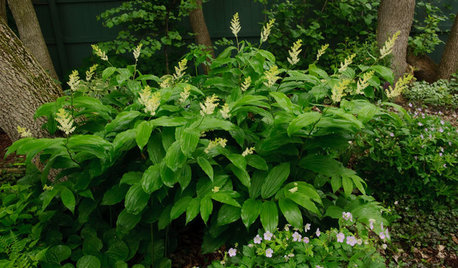

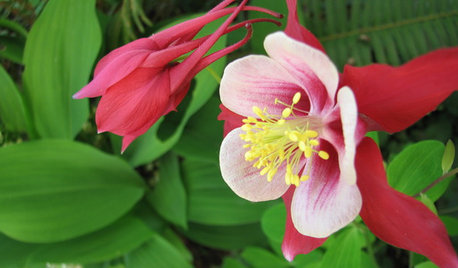

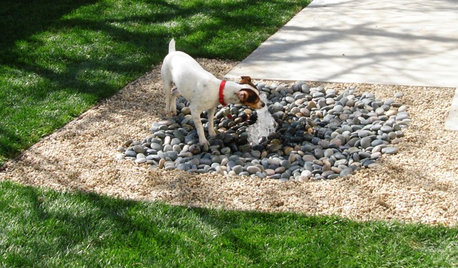
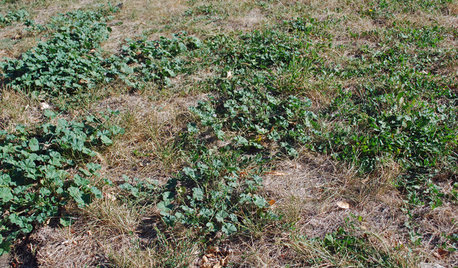


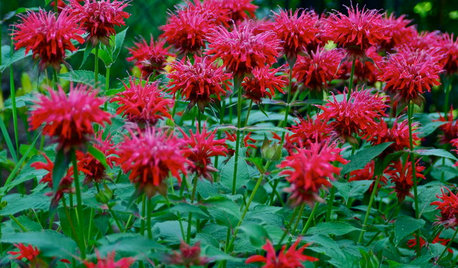







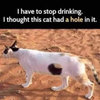



gardengal48 (PNW Z8/9)